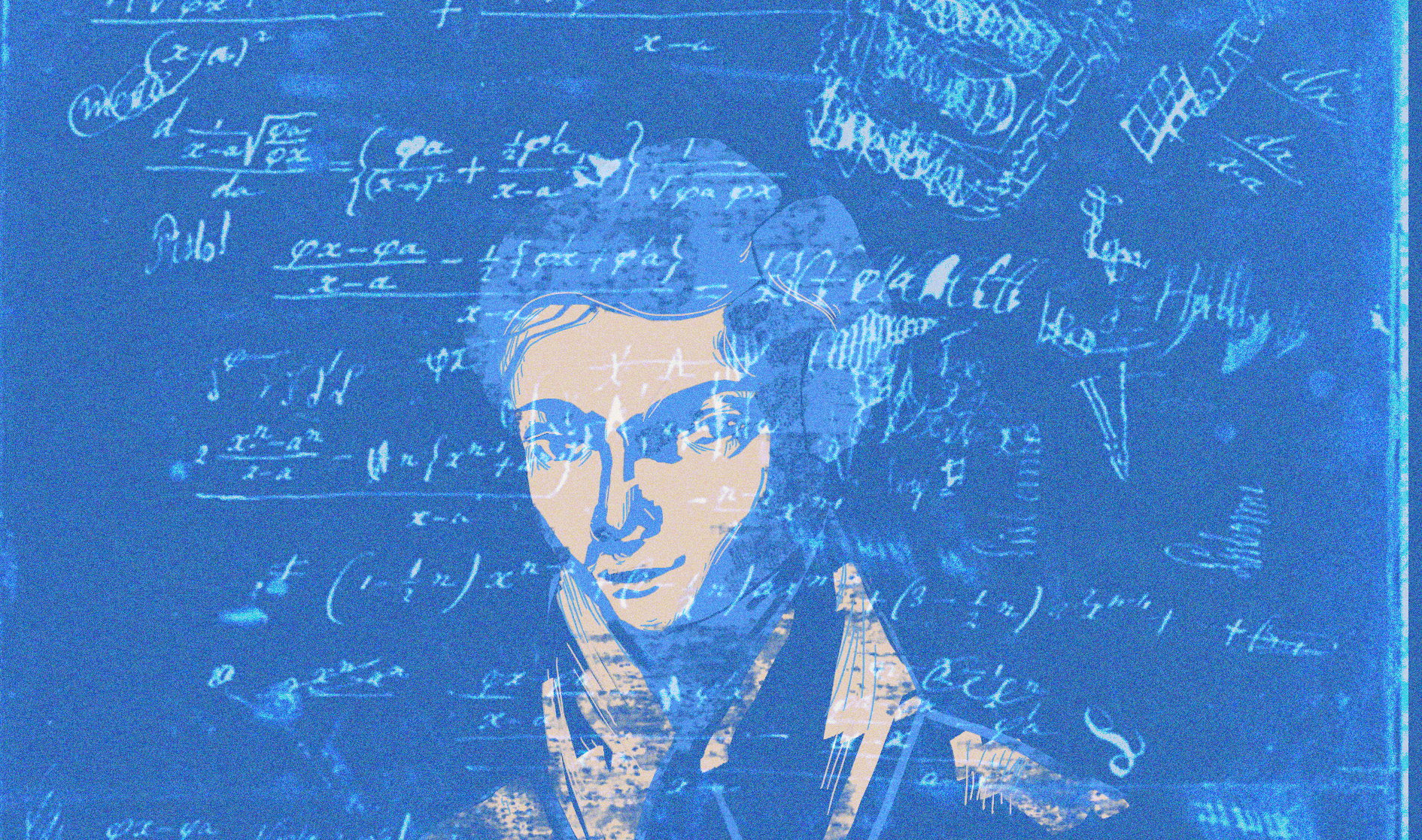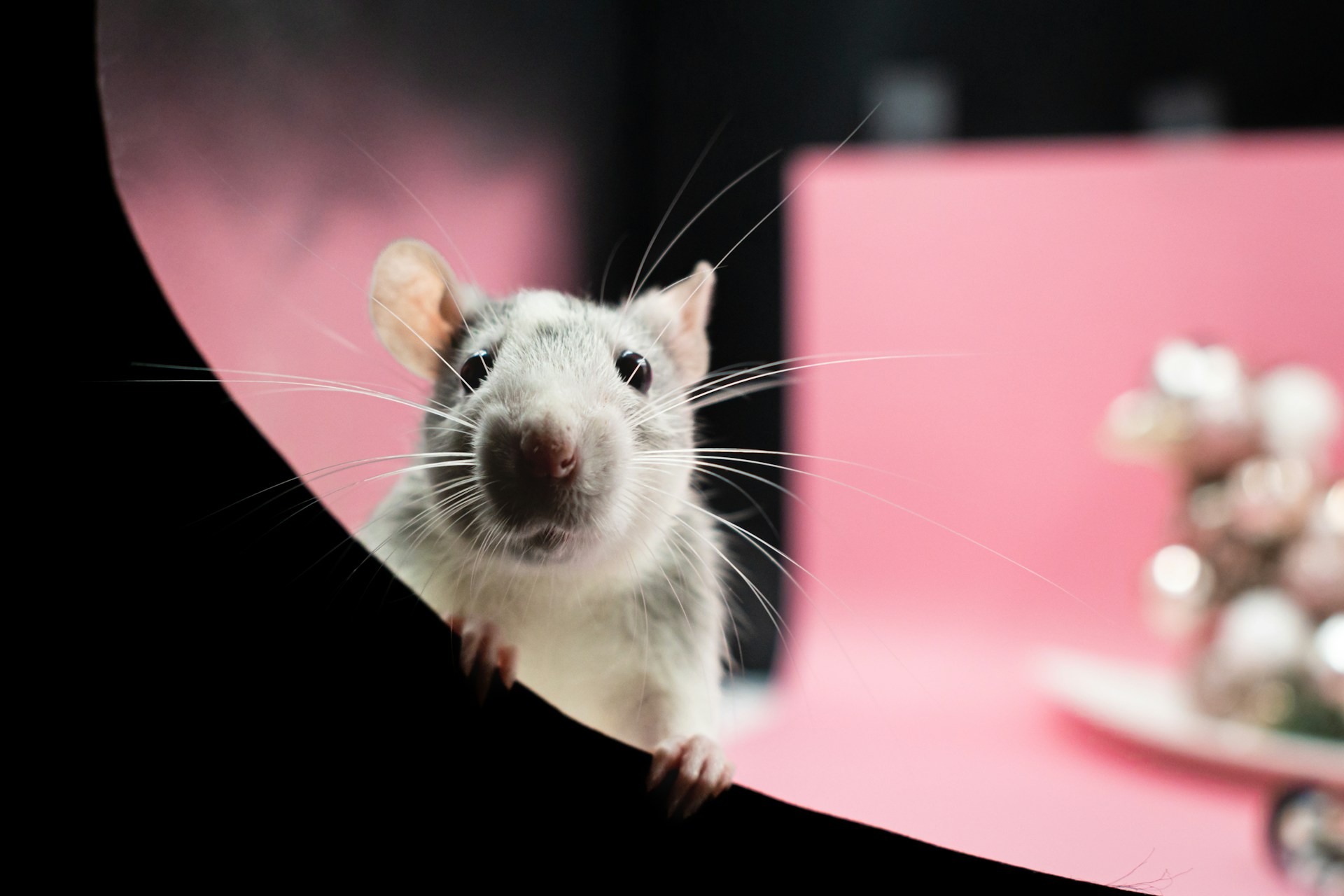What makes Galois so different from other pivotal mathematicians? Photo credit: Jiaqi Ding via The Oxford Scientist
When we think of classical mathematicians, a certain image comes to mind: a dusty, eccentric lecturer – most likely an older man – with an implacable speech impediment and a self-imposed social isolation so overpowering that a date (or friendship) would be firmly out of the question, even if he did shower regularly. While this statement may be harsh, and many people may not feel comfortable saying it, they would largely be correct in this assumption. The most well-known and esteemed mathematicians, such as Newton and Cauchy, fit this stereotype to a staggering, almost cartoonish degree.
…breaks the mould so spectacularly, you would not believe his work to be a cornerstone of modern mathematics.
One mathematician, however, breaks the mould so spectacularly, you would not believe his work to be a cornerstone of modern mathematics. A progressive revolutionary, a heartthrob romantic, and an academic reject who failed his university entrance exams twice. It seems impossible to reconcile the man that Éveriste Galois was with the stereotype of mathematicians, particularly those of his time. To do so would be futile, so it is a good thing that this article only aims to serve as a surface level introduction to a man who was incredible by much more than simple mathematical standards.
A progressive revolutionary, a heartthrob romantic, and an academic reject who failed his university entrance exams twice.
First, we must contextualise Galois through his mathematical achievements. Galois is widely regarded as a founder and pioneer of group theory, a pillar upon which modern mathematics stands. It is a field of research so vast that it encompasses almost all of the work done in pure mathematics today. In fact, groups are such a vital tool that they extend to other disciplines such as physics and chemistry, and are applicable in almost any mathematical circumstance. Galois also solved a 350 year old problem: he deduced that there are no formulas akin to the quadratic equation that would solve polynomials of degree 5 or higher in his revolutionary work now known as Galois theory. Though Galois did not provide many substantial proofs for any of his work, his ideas have no doubt shaped modern mathematics, which begs the ultimate question: how the hell did he fail his university entrance exams?
In two words: daddy issues. Or inadvertently so, anyhow.
Éveriste Galois was, as you might have guessed, French. He was born in 1811 – against the backdrop of a soon-to-be French revolution – to a Republican father who was the head of the Liberal party, and a mother who by all standards was also atypical for the time; she was one of very few well-educated female lawyers, fluent in Latin and classical literature. Éveriste spent his early years educated by his mother, and there is little doubt that his parents heavily influenced his political views. The young Galois would grow to become a Republican and fervent believer in democracy, continuing the legacy of his father, who died when he was only eighteen.
This death affected Galois greatly. Whilst drunk for the first time during his brief incarceration (more on this later), Galois stated:
“And I tell you, I will die in a duel on the occasion of some coquette de bas étage (flirtation that is beneath me, for want of a better translation)…
I’ve lost my father and no one has ever replaced him, do you hear me…?”
Later that night, Galois would attempt to commit suicide, stopped only by his fellow inmates. We can see how deeply he was affected by his father’s death and this, in the mind of many, explains the outbursts caused by some of his more prevalent eccentricities.
It was no secret that Galois was flighty, unreliable, and lazy, even before his father’s death. Much of Galois’ classwork in school was described as subpar in spite of his brilliance, which was only recognised for other reasons. These included the many papers with revolutionary ideas he wrote as a teenager, which were given serious consideration by prominent mathematicians of the time. He also studied impossible-to-decipher mathematical texts with ease. Yet the reason cited for his first failure to enter l’École Polytechnique, the most prestigious university in France at the time, was a lack of explanation during the oral exam. It was also clear that he had prepared very little (if at all). This was a hallmark throughout much of Galois’ work: he was messy, sloppy, and did not employ the level of mathematical rigour expected of mathematicians.
…he was messy, sloppy, and did not employ the level of mathematical rigour expected of mathematicians.
These problems took a turn for the worse after his father died. Shortly after, Galois tried and failed to enter l’École Polytechnique once again, supposedly condemning his examiner’s incompetency in a grief-stricken outburst. Following this, his temper grew shorter, he leant more into the revolutionary politics his father supported and, most notably, he kicked off against the director of the university he did end up attending, one considered beneath him even by some of the professors there, called l’École Normale.
This dispute culminated during the July Revolution. Whilst the students of l’École Polytechnique were making history out on the streets, the director of l’École Normale locked his students in, refusing to allow participation in political activities. As was becoming a recurring trend, Galois was incensed by his sense of justice. He wrote a scathing letter to the Gazette des Écoles, laying into the director and proudly signing off with his full name. Though his letter wasn’t published, Galois was nonetheless expelled; or at least he would have been, if he hadn’t immediately quit university without finishing his degree to join the Republican artillery unit of the National Guard.
The Republican artillery unit was – to say the least – a problem for the reigning monarch, Louis Phillipes. As revolutionary ideas grew more prevalent within French communities, their ideas and influence grew considerably. King Louis, freshly crowned in the July Revolution amidst the political turmoil that had rocked France, soon saw them as a threat to his power. Less than a year after Galois joined, nineteen officers in his unit were arrested for conspiring to overthrow the government.
Surprisingly, these officers were released, and a banquet was thrown in celebration. Galois attended this banquet and, witty as ever, toasted Louis with a dagger hanging over his cup. Whilst this was met with a cheer by Republicans at the table, it was widely interpreted as a threat to the king, and promptly led to Galois’ first arrest the next day. He was incarcerated and stayed in prison until his trial, where he was acquitted due to a clever, very Galois-esque argument from his lawyer. The lawyer argued that Galois had actually said “To Louis Phillipe, if he betrays”, which translates contextually to “a threat to those that would betray the king”. It was claimed that the last half of his sentence was drowned out by cheers from Republicans, who had misconstrued his meaning. Of course, the lawyer’s argument could not have been more wrong; there were few that would rather have seen the king dead than Galois, who would continue his revolutionary politics even after this brush with the law undeterred.
This persistence was a key part of Galois’ character. Earlier in his life, many of the academic papers he submitted were rejected by Cauchy and the Polytechnique, who only begrudgingly recognised the importance of his work when it linked into their own. In spite of this and his failure to get into the Polytechnique, as well as his expulsion from university, Galois continued with mathematics, writing seminal papers chock-full with insight. All of these were immediately shot down and left unpublished by the mathematical institutions that ruled academia at the time. He was very much a mathematician appreciated only after his death.
…Galois continued with mathematics, writing seminal papers chock-full with insight.
So it will not come as a surprise that Galois was arrested again shortly after his acquittal, stubbornly refusing to back down from politics. By this point, the Republican artillery unit had been forcefully disbanded by an ever-fearful monarchy, and in a gesture of defiance, Galois headed a protest in his now defunct uniform. No clever argument could save him here. It was during this second time in prison that he had the drunken outburst about his father and his first known attempt at suicide.
Poisson… stated that his work was incomprehensible
Galois’ precarious mental health would soon deteriorate even further. He tried to work more on his maths, continuing to send in various papers for publication. All of these were rejected and sniffed at by eminent mathematicians of the time. Poisson, for example, stated that his work was incomprehensible, with a venom-tipped disdain so cutting that even the stubborn Galois was hurt enough to change his ways. He began making his approach to mathematics more comprehensive, even if the presentation was still messy. This changed nothing; his work remained unpublished. Frustrated by the institutions of the time, he took to having his work self-published whilst he was in prison through his good friend, Auguste Chevalier.
It was no time at all before he was released, anyway.
The newfound freedom Galois gained upon his release would not last long. Soon afterwards, Galois was mysteriously killed in a duel. Shot in the abdomen, presumably over his relationship with a woman — a morbid reflection of the prophecy that he had drunkenly made. This woman is widely thought to have been Stéphanie-Félicie Poterin, daughter of the man who owned the hostel he stayed in after his release. Galois is thought to have been killed by her fiancée, though this and the fiancée’s identity is heavily disputed. What we do know is that Galois knew that the duel was likely to end in his own death; he spent much of the night before writing up his most important works in group theory and Galois theory, and sending them off to Chevalier in eleventh-hour letters that would end up defining his legacy. These letters have been described by mathematician Hermann Weyl (with perhaps a little bit of embellishment) as “the most substantial pieces of literature in the history of mankind”, cementing Galois’ place as a mathematical great.
In hospital just before his death, Galois, ever the romantic, said to his brother:
“Don’t weep, Alfred! I need all my courage to die at twenty!”. It was a fitting end: there are few traits that embody the spirit and character of Galois more than courage. Courage in his persistence in his maths, courage in his stand against what he perceived as the tyranny of the monarchy, and courage despite his own shortcomings. If he lived in the modern day, away from the revolutionary politics that characterised France at the time, he might be considered his own worst enemy. But in the time he lived, he had to overcome not just his own flaws, but a deadly cocktail of grief, pretentious academics and a political landscape that trampled the very liberties he fought for. Yet he persisted courageously, and even in death, left a legacy of resounding effect, both short-and long-term. His funeral ended in riots, his political ideas fell into the mainstream and eventually succeeded, and, most importantly, he is regarded as one of the most influential mathematicians of the modern age. While the man who shot him has been lost to history, and the many mathematicians that dismissed him relegated to obscure textbook footnotes, Galois has persisted, and will persist for many years more. In my mind, there is nothing more beautiful than that.
Try beating that one, Alexander Hamilton.





